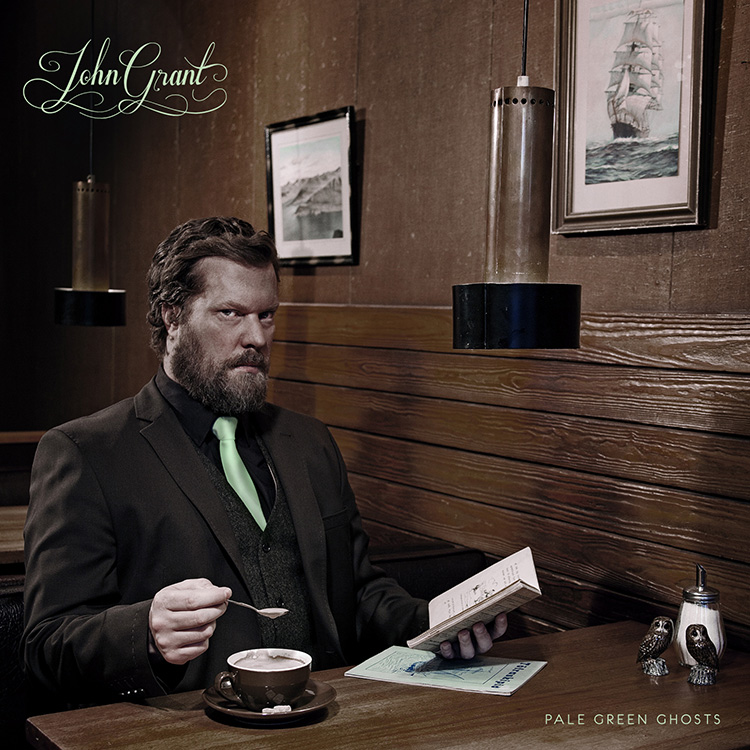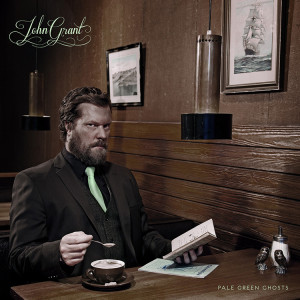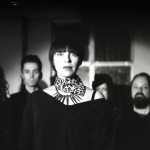Is it possible not to like John Grant?
If you did you’d have to deal with the ire of former The Czars frontman’s dutiful and ardent fans, who rewarded the modest, self-deprecating singer’s final show promoting Pale Green Ghosts with frequent extended applause and a double-barreled standing ovation.
The poet, philosopher and Pop Idol loser Darius Danesh once declared that “there’s a lot of love in this room” and the same could be said of London’s Royal Festival Hall, from the moment first the Royal Northern Sinfonia (led by conductor Christopher George) and then members of Grant’s touring band made their way onstage.
Buried from deep within an impressive, inspiring beard comes a rich and opulent baritone voice that effortlessly fills the Festival Hall’s exposed spaces, something that the Reykjavik-based songwriter’s recorded work doesn’t quite succeed in capturing – a true case of ‘you had to be there’ to experience the resonance and depth that John Grant possesses within his otherwise fragile shell.
Initially, the opening track ‘You Don’t Have To’ completely overwhelms the chamber orchestra with pre-recorded electronics and it isn’t until the Gary Numan-esque bleeps and squiggles are muted on ‘Vietnam’ that Placebo collaborator Fiona Brice’s gorgeous arrangements can be fully appreciated. Eager cheers greet the familiar piano arpeggios of ‘Marz’, dexterously played by Chris Pemberton, the pop musician capably displaying the same qualities as the disciplined masters of the classical repertoire behind him. The single, taken from Grant’s debut album Queen of Denmark sits incongruously in the otherwise bittersweet, sardonic tales of drugs and sex that make up the bulk of the set. Its saccharine list of sugary delights (the title itself is merely the name of a Michigan confectionary shop from John’s childhood) evokes the spirit of The Carpenters and raises a salute to those other Nordic tunesmiths, Abba.
Soft, melodic rock sits well with the Colarado educated boy, who despite having a history wracked with self-doubt and self-loathing seems born to entertain – not with vocal gymnastics and frantic dance routines but with a shy smile, a gentle “thank you” and a coy nod to his cohorts in the orchestra. He seems to have found contentment and security on the stage, a place where he can be himself and his songs can (if I may use football parlance) ‘do the talking for him.’
When he does break into stage banter he recalls a hair product from the 1970’s called ‘No More Tangles’ and then proceeds to sing a newly written song using knotted hair as a metaphor for his own, troubled love-life. For once, the imagery of the shampoo and the juxtaposition of personal tragedy don’t quite work and matters are not helped by a frankly ludicrous and infuriating guitar part that clashes with the beauty and exquisiteness of the Sinfonia’s strings.
Midpoint in the set suffers a slight over-reliance on Manilow themed orchestration, 80’s synth squelches and new material, a lull in proceedings that is only overturned by a trio of top-class songs: ‘JC Hates Faggots’, the ironically egotistical ‘GMF’, and finally his serenade to ‘Sigourney Weaver’, perched in plastic model form on top of John’s piano.
The bombast that accompanies ‘Queen of Denmark’ evokes Bond themes and Last Night of the Proms combined with fully blown rock-opera and 70’s pomp and circumstance. A disappointing guitar feedback interlude from Pétur Hallgrímsson leads to Grant corpsing and missing a lyric but by this point in the evening no-one minds. Even members of the Sinfonia are swaying back and forth, while not quite Wayne’s World back-of-the-car head-banging, are still pretty animated for a formal orchestra.
A single encore removes the ‘Live and Let Die’ theatrics. ‘Fireflies’ and ‘Caramel’ are subtler, subdued and yet beautifully shaped songs. It’s a fitting, low-key end to an otherwise extraordinary evening in the company of an exceptionally remarkable performer. The contribution of the gifted players of the Royal Northern Sinfonia cannot be underestimated but the spotlight truly shone on one rather emotional, often-troubled man seemingly conquering his demons through music.
Is it possible not to like John Grant?
Not really.





